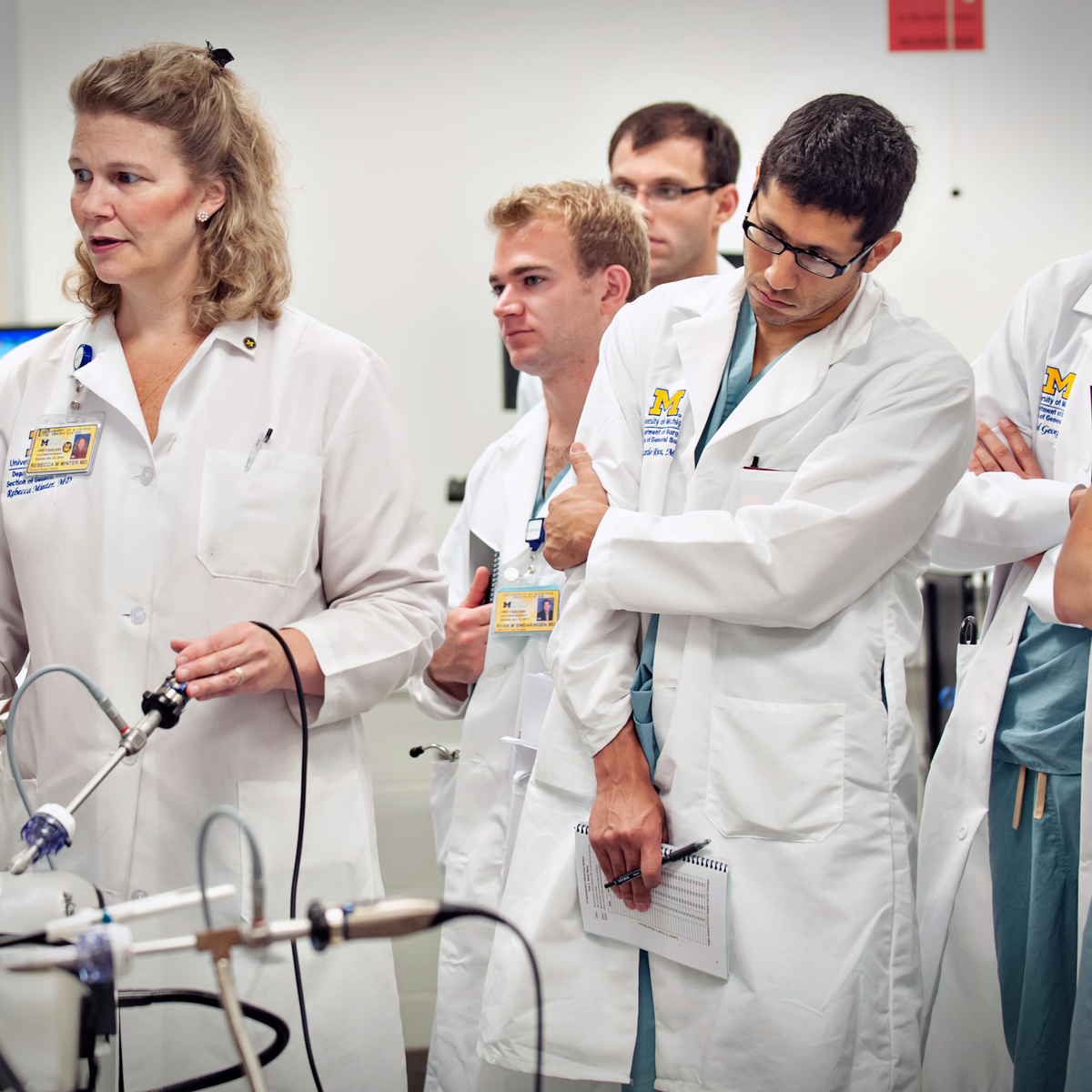Back to Courses









Public Health Courses - Page 14
Showing results 131-140 of 196

Cancer Prevention Web-Based Activity
This web-based video course focuses on the importance of prevention and risk reduction in decreasing cancer occurrences. All learners will need to watch the video modules, read associated articles, and achieve a passing score of 80% on quizzes in order to complete the course. After completing the course, learners will receive a link to claim continuing medical and nursing education credit.
DESCRIPTION
Next Generation Choices Foundation (NGCF or Less Cancer), lesscancer.org, in conjunction with the University of Virginia and American University, promotes a prevention paradigm for addressing the alarming trend of increasing cancer incidences and raises awareness of cancer prevention to make risk reduction and prevention a vital part of the cancer paradigm for all people. This is a departure from previous treatment-focused approaches that talked about beating, conquering, or curing cancer. Many cancers are preventable by reducing risk factors, such as PFAS and lead corrosion in water supply and infrastructure, use of tobacco products, ultraviolet light exposure, asbestos exposure, specific contaminants and pollution sources, disparities and inequities, and promoting healthy lifestyle choices, such as diet, exercise, and nutrition.
Visit the FAQs below for important information regarding 1) Activity faculty and their credentials; 2) Accreditation and Credit Designation statements; 3) Commercial support disclosure statement; 4) Disclosure of financial relationships for every person in control of activity content and their role in the activity; 5) Date of original release and Termination or expiration date.

Value-Based Care: Reimbursement Models
COURSE 4 of 7. This course is designed to help you build high-level knowledge of the current medical coding and payment mechanisms of most U.S. healthcare services, referred to as fee-for-service. You will explore why the fee-for-service model has contributed to higher costs in the U.S. healthcare system without clearly improving health outcomes. You will examine the importance of coding to reflect chronic conditions and other diagnoses accurately and how value-based care and payments utilize these measures and data. As you learn about a model to replace fee-for-service, you’ll encounter a range of payment options considered to be value-based that utilize a framework from the Health Care Payment Learning and Action Network (HCP-LAN). To build on those options, you will learn how risk-adjustment, quality scores, and patient satisfaction measures are critical parts of value-based care and payment contracts. In the summative assignment, you will demonstrate your knowledge by comparing fee-for-service and value-based contracts, using specific examples to explain and justify the importance of documentation and coding, and identifying ways that risk-adjustment and patient satisfaction are incorporated into value-based care contracts.
CME Accreditation
The American Academy of Family Physicians (AAFP) has approved this course for Continuing Medical Education Prescribed Credits. Visit the FAQs for important information regarding 1) Term of approval and 2) Accreditation and Credit Designation statements.

Quality Improvement for Population Health
Quality improvement methods were first deployed in healthcare in e hospital settings. However, over the past decade particularly, there has been increasing focus on the application of these methods in improving population and public health. In this course, you will apply a combination of both approaches to population health improvement. You will also learn how to study and evaluate large improvement initiatives to capture learning effectively.
Learning Objectives:
Apply quality improvement methods in combination with population health frameworks to design a population health improvement initiative
Understand how the use of geographic information systems contributes to quality improvement
Critique different study designs for studying quality improvement initiatives

International Travel Preparation, Safety, & Wellness
Whether you've traveled before or not, living and working overseas can be challenging. Learn how best to prepare and make the most of your time internationally.
This course will prepare you to work and live overseas. It explores the epidemiology of common morbidity and mortality among travelers and examines key prevention, safety, and travel medicine principles and services to contextualize risks and maintain wellness. The course reviews applicable interventions, appropriate vaccines, and personal protection methods to prepare you to respond to expected and unexpected situations and will challenge you to examine travel health and safety priorities through case studies and discussions.
The Honors Lesson will assist you with personal preparations for travel through the creation of a country-specific profile.

Global Health: An Interdisciplinary Overview
This course proposes an overview of current global health challenges drawing on the insights of several academic disciplines including medicine, public health, law, economics, social sciences and humanities. This interdisciplinary approach will guide the student into seven critical topics in global health.
Managing Supply Chain Disruption During COVID-19
In this course, you will learn about why and how supply chains become susceptible to a disruption. We will examine this by discussing supply side and demand side issues, primary supply chain flows, complexity, risk management and a combination of solid theoretical supply chain perspectives and current real-world stories. You will learn about the structural, relational and operational factors that come into play during a supply chain disruption and the mechanisms for the effective management of these factors. Your understanding will be enhanced through examples from manufacturing and health contexts, and the PPE supply chain disruption during COVID-19.

Cannabis, Chronic Pain, and Related Disorders
This Cannabis, Chronic Pain, and Related Disorders course is designed to have you think critically about the health effects of cannabis (i.e., marijuana) in the context of chronic pain, opioid use disorder, obesity, sleep dysfunction and cancer. We'll learn about the epidemiology and etiology of these conditions, the harms/benefits of current treatments, and learn how to evaluate the literature on cannabis for these conditions. We will discuss special considerations for using cannabis for these conditions, such as dose, timing, side effects, and drug interactions. Lastly, we'll discuss how it is being used in the context of palliative care. Obtaining this knowledge will be helpful in terms of informing public policy, public health, and personal decisions regarding the use of cannabis products.

Purpose at Work: A Course for Employees and Leaders
Welcome to Purpose at Work: A Course for Employees and Leaders!
Why purpose at work? Because most of us spend most of our waking hours working. Many of us spend years of effort to obtain jobs that may give us purpose. But can we find purpose in nearly any job? Are we more engaged and likely to remain in our job if it gives us purpose? Can leaders create a culture that makes it easier for people to find purpose in their work? The answers are ‘yes’ to all of the above and this course shows you how.
In this course we first examine what purpose is, the benefits of having a purpose, and how to find your own purpose. We then look at purposeful work, including ways of finding purposeful work in the process of leading a more engaged and fulfilling life. Finally, we focus on purposeful leadership, including ways of leading with purpose and managing yourself. Also, in this course I interview business executives, leading organizational psychologists, and even the research director of NASA. These discussions offer real-world insights and strategies to students, employees, and leaders.

Public Involvement in Research
This course focuses on participatory approaches in research, known as 'public involvement' in the UK. You'll specifically, consider why citizens and patients would be involved in research and explore participatory approaches across and within the research cycle in more detail, diving into questions such as:
- what kinds of participation can be undertaken at each of the 7 stages of the cycle?
- how can you utilise participation in research?
- what examples of using participatory approaches exist in research?
While this course, as with the rest of the specialisation, focuses on public health and ways of involving citizens and patients across and within the research cycle, these concepts apply to other disciplines and kinds of research too. So, you don't have to be a public health specialist or work in healthcare to gain insight from this course.
If you would like to learn more about the theories and core principles of participation within a public health context, we suggest taking Introduction to Participatory Approaches in Public Health. If you're planning a research project and want to include participatory approaches, explore our course Applying Participatory Approaches in Public Health Settings.

Instructional Methods in Health Professions Education
This course provides those involved in educating members of the health professions an asynchronous, interdisciplinary, and interactive way to obtain, expand, and improve their teaching skills. These skills can then be applied within their own professional context, with a variety of learners, extending across many stages.
After completing this course, learners will:
1. Understand educational theory as it relates to health professions education
2. Match instructional methods with desired educational outcomes
3. Learn a variety of applied teaching techniques
4. Share successful teaching strategies
Suggested resources will include educational videos, individual readings, recommended
reference books, and crowd-sourced recommendations. All students should have
dependable access to the internet with video streaming capabilities. Some students
may want the ability to utilize on-line video conferencing as well.
Popular Internships and Jobs by Categories
Find Jobs & Internships
Browse
© 2024 BoostGrad | All rights reserved